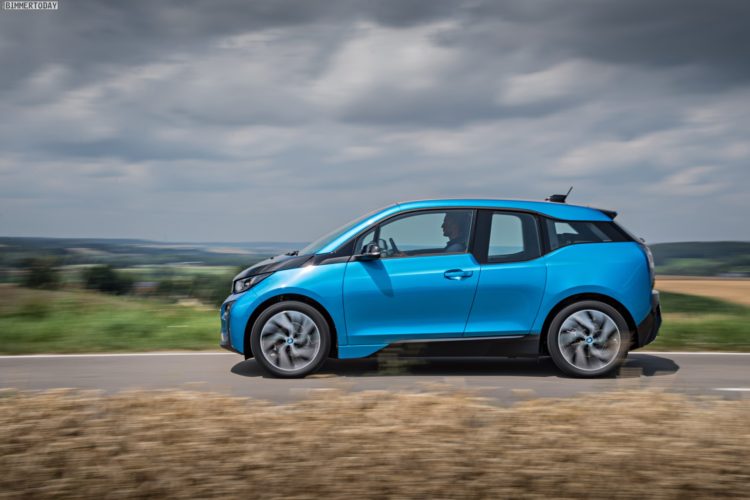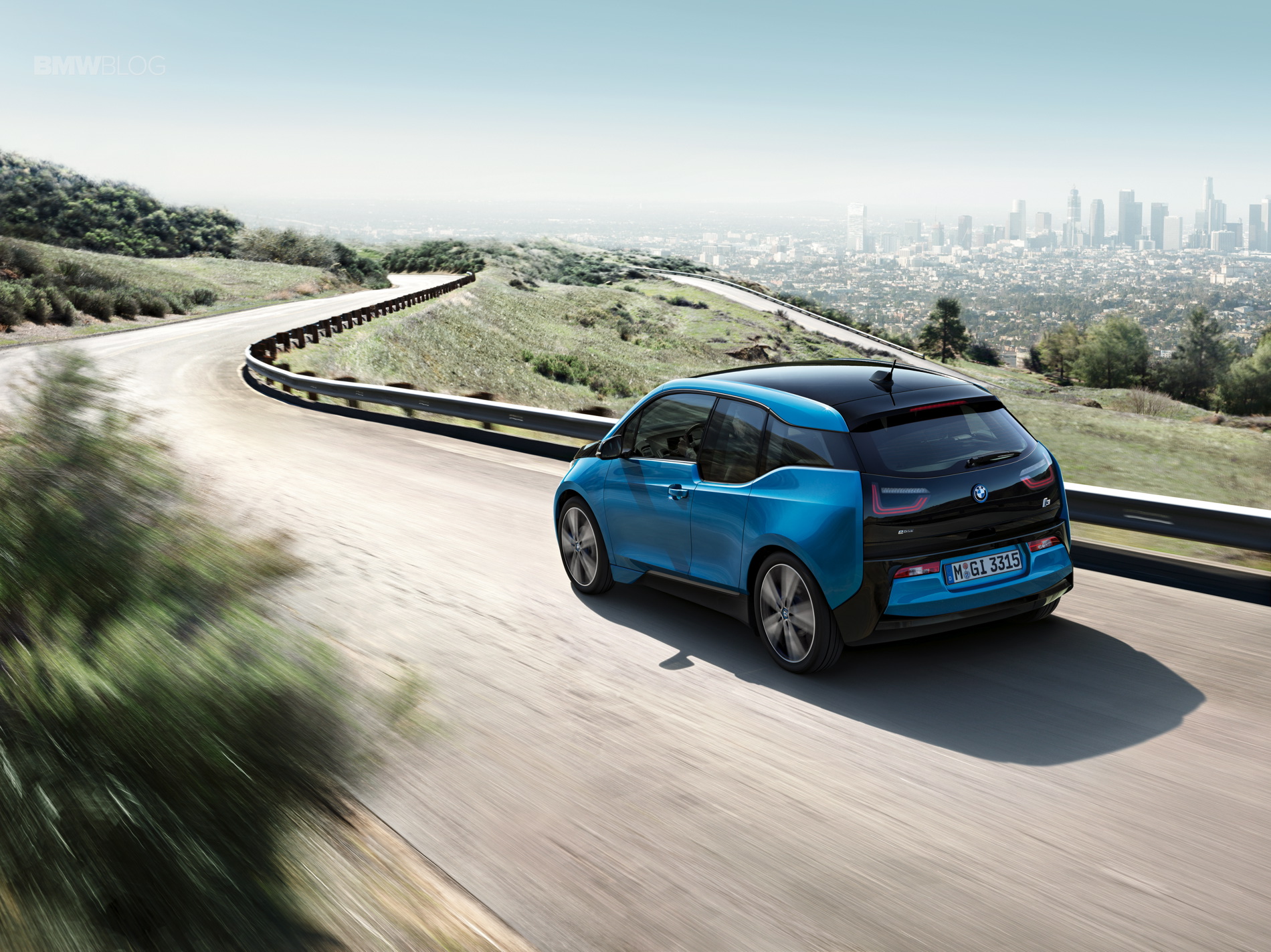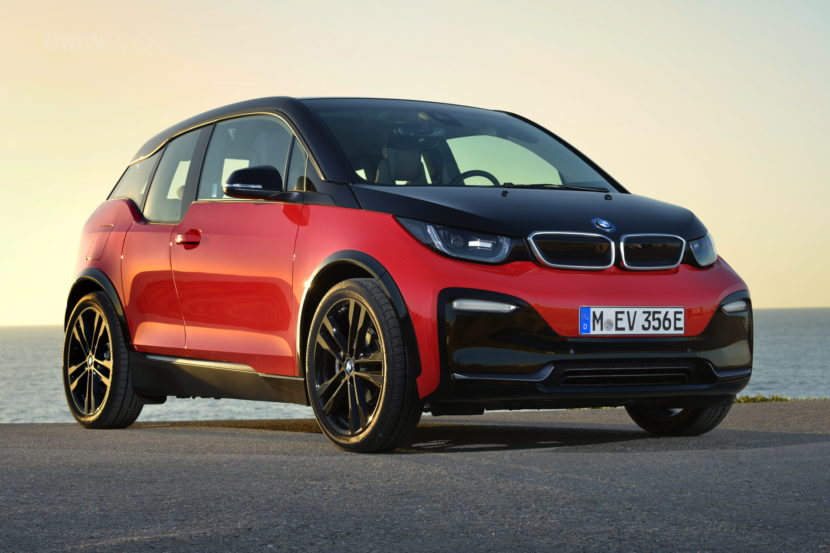Ahead of the battery refresh for the BMW i3, sales of BMW electric vehicles rose 58 percent in the US. 1,479 units sold were sold in July compared to 935 units during the same period last year. BMW i3 sales are still down 19.1% year-to-date but the sales expectations are high for the refreshed i3.
The new battery pack is increasing from 21.6 kWh to 33.4 kWh, which is an increase in capacity of about 50 percent. However the range of the i3 BEV will only increase by 40 percent from 81 miles per charge to 114 miles. Mostly because the i3 now weighs more (roughly 100 lbs more) because the new higher capacity cells weigh slightly more than the ones they replace. The slight increase in weight will likely only have a very minor effect on performance, if any.

BMW will continue to sell both models in the U.S., but the range extender will not be an option for the 60 Ah i3. BMW will hold the price and offer it for the same $43,395 ($42,400 plus $995 for destination and handling) as the 2016 i3 sells for.
The 94 Ah 2017 BMW i3 BEV will list for $44,595 and the REx will now cost $48,350.
BMW calls this kind to product refresh an LCI (Life Cycle Impulse). That’s a mid generation refresh for the vehicle where they make improvements, but don’t create a new vehicle. The battery upgrade is the big deal of this LCI, and will probably the biggest improvement the first generation i3 has during its lifespan, which will likely be until about 2019.
Sales of BMW brand vehicles decreased 4.4 percent in July for a total of 25,777 compared to 26,970 vehicles sold in July, 2015. Year-to-date, the BMW brand is down 8.4 percent in the U.S. on sales of 179,213 compared to 195,593 sold in the first seven months of 2015.





































































